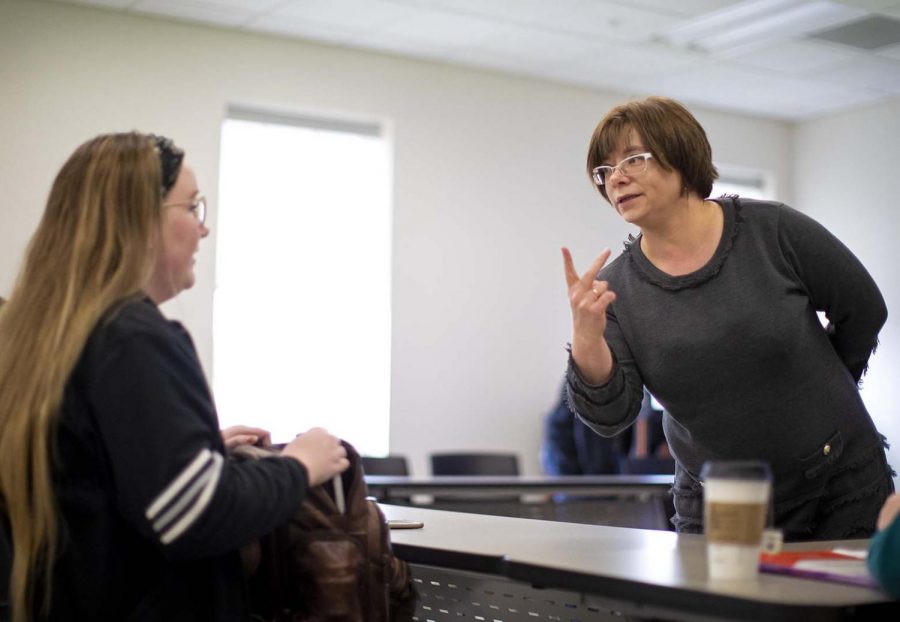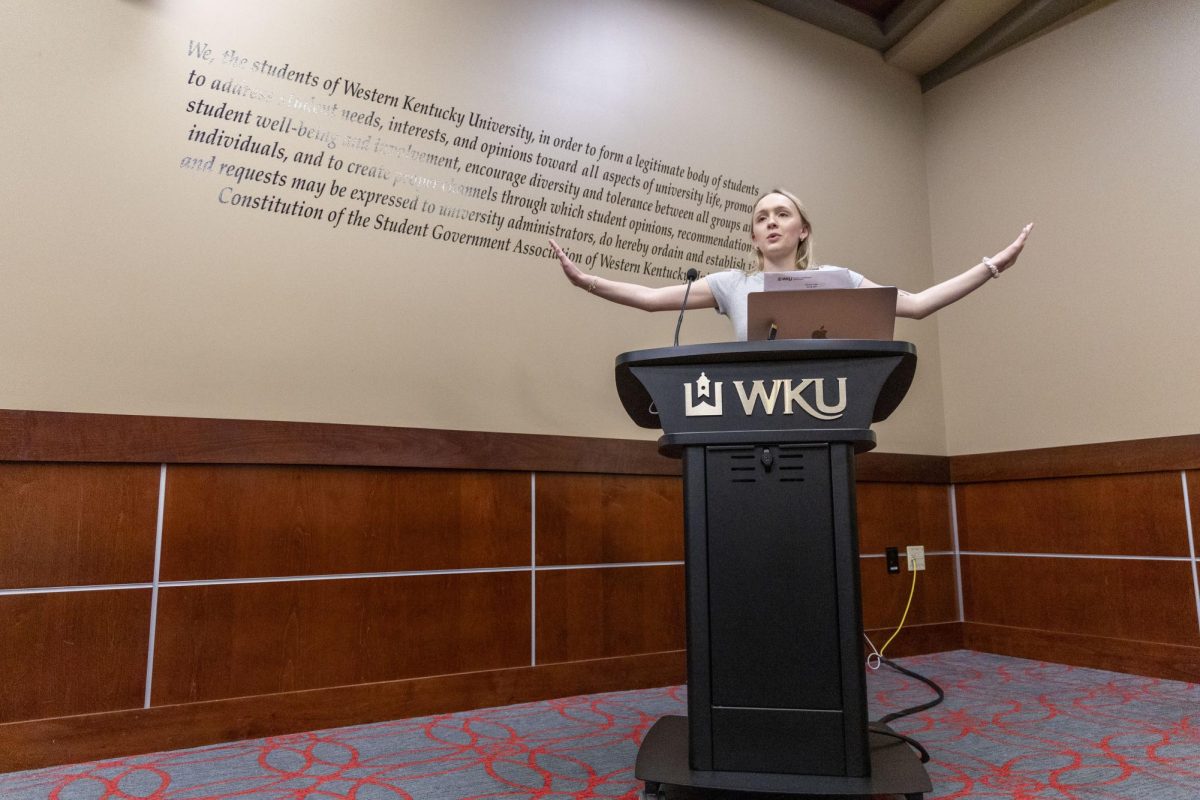Modern language programs may face suspension
March 12, 2019
Enrollment in WKU’s modern language programs has dropped precipitously following a university decision to count two years of high school foreign language classes as students’ modern language credit.
The WKU University Senate approved the resolution in 2017 to address a backlog of over 7,000 students who had not yet fulfilled their language requirement.
“This is basically a band-aid to clear the deck, to basically say that the 7,000 students who still have not filled the requirement, that if you have two years of high school [credit], you’ve fulfilled it,” Jerry Daday, then chair of the Colonnade General Education Committee, said in a previous Herald article when the language requirement was removed.
Laura McGee, head of the Department of Modern Languages, said there are currently hundreds fewer students taking language courses now compared to before the passage of the new rule.
“We’re down three instructors, and each of these people taught 300 students a year,” McGee said.
As a result, the French major will be phased out by 2021. Minors in French, majors and minors in German and minors in Spanish have been recommended for suspension by college deans. Any suspended program will continue until all currently enrolled students have completed the program, but no new admissions into a suspended program will be allowed.
The Spanish major has been rated as a course designated for “transformation.”
McGee said there is no specific route for “transforming” a program, and she believes there is a fair amount of space in making decisions.
“I think we want to do the best job we can to meet the career needs of students, so that’s really one of the angles we’re gonna take on that,” McGee said.
These recommendations will be reviewed by WKU’s committee of Comprehensive Academic Program Evaluation as part of a broader assessment of WKU’s academic offerings.
Comparatively, the Arabic and Chinese programs have fared well throughout the CAPE assessment likely due to their enrollment not being substantially diminished by the decrease in total language enrollment following the acceptance of high school credit in place of a WKU language credit.
Junior international affairs major Sofia Kamali said she believes Arabic and Chinese are strategic languages and bear many employment opportunities in international affairs or the political science area of interest.
“Having a wide variety of languages has many advantages for a lot of students,” Kamali said. “It helps them with career opportunities, study abroad and many others, and I believe that these languages should not be suspended, as it can probably hinder students chances in many career opportunities, study abroad.”
Kamali said her participation in the Arabic minor program is a good compliment to her major in international affairs and that she plans to use it to work in the Middle East.
Neither the Arabic or Spanish programs have been recommended for suspension or transformation by the committee.
“[W]e are at most halfway through the CAPE process, and while we are beginning to have a sense of how most programs may ultimately fall out, all recommendations at this point are advisory,” said Bob Skipper, director of Media Relations, said in the former Herald article.
In relation to faculty teaching a suspended program, the committee has said its first obligation will be to tenured faculty. While the faculty’s obligations may change, WKU does not anticipate a reduction in force, and it will do its best to protect untenured faculty wherever it can, according to the CAPE website.
Concerning layoffs in the modern languages department, McGee said a faculty member in the French program expects to retire in a few years. She said she is uncertain what is expected in the German program.
“That hasn’t been said per se,” McGee said.
With the suspension of the French major program already set in stone, the outcome for other programs recommended for suspension remains uncertain.
“I personally and professionally would love to live in a world where all students have taken a language and have learned about culture and about how people in other countries think through learning the language,” McGee said. “That’s not going to be the case at WKU anymore.”
The final decision on the CAPE report and the programs recommended for suspension will be made by the Board of Regents in May.
Elijah Starkey can be reached at 502-264-3657 or by email at elijah.starkey395@topper.wku.edu.













